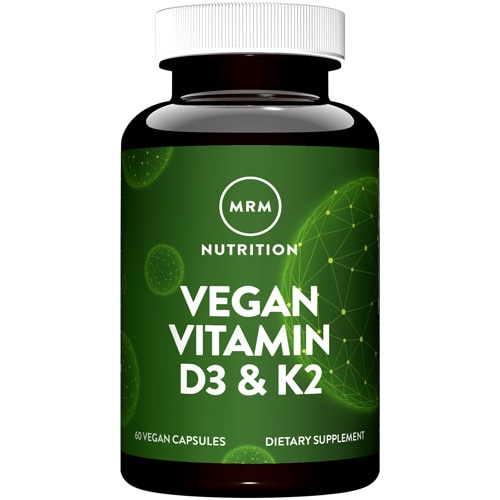There are 13
essential vitamins, and each serves a purpose in keeping us healthy, energetic and feeling good. In 1935, the
New York Times reviewed a book on vitamins, noting “the mysterious factors of diet, the vitamins, their importance in conserving health, providing vigor and adding to the length and value of life.” In the intervening century, the science of nutrition has shed a little more light on dietary needs, but the bottom line on vitamins remains mysterious. While the nutrients in vitamins are considered essential, the verdict is still not out whether diet alone can provide ample coverage.

If you eat a mindful diet, full or fresh produce, constantly varied, you may indeed not need to supplement. But, as Meir Stampfer, M.D., professor of nutrition and epidemiology at Harvard University points out, “how many of us can claim to be getting the full complement of what we need from our diet each day?"
This vitamin guide will give you an understanding of how particular different types of vitamins work in your body—and whether it may be worth supplementing to avoid deficiencies.
Essential Vitamins Guide
Vitamin A
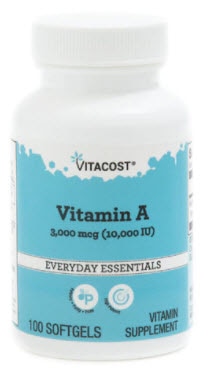 What it is:
What it is: Vitamin A is a
fat-soluble vitamin essential to our health and it has several important functions in the body, most notably helping with vision by supporting the conjunctival membranes and cornea. In general,
vitamin A promotes normal growth and health of the body cells, so it also helps keeps your skin and the lining of some parts of the body healthy.
Signs of deficiency: Extreme eye dryness is one of the first signs of deficiency, but other signs are dry, scaly skin, frequent diarrhea and respiratory infections.
Food sources: Liver is an excellent source of vitamin A, followed by shrimp, eggs, whole milk, yogurt, butter and cheese and fortified cereals, breads and milk.
Good to know: Retinol (a term used to describe a specific form of vitamin A) and the retina are etymologically connected for good reason—blood cells carry retinol to the retina in the back of the eye, where it’s used to help amplify vision in low light situations.
Vitamin B family
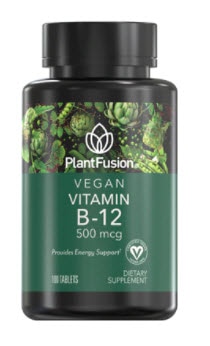 What they are:
What they are: There are eight B vitamins in all, including folic acid, thiamin, niacin, and riboflavin, and they all have a similar function: metabolism support, stress regulation and the production of fuel and energy. The Bs work synergistically together to protect our nervous and cardiovascular systems. For pregnant women, or women planning to be, adequate folate (B9) is critical.
Signs of deficiency:
B1: Loss of appetite, constipation and irritability.
B2: Low energy, insomnia, sensitivity to light, itchy skin, sore throat, cracked corners of the mouth.
B3: Heartburn, abdominal bloating, mouth sores and constipation.
B5: Feet burning and tingling.
B6: Anemia, fatigue, weakness and cracked skin at corners of mouth.
B7: Hair loss, thinning hair, cracked skin at corners of mouth, red, scaly skin.
B9: Anemia, headaches, irritability.
B12: Pale skin, fatigue, dizziness, sore tongue, shortness of breath.
Food sources: Whole grains (brown rice, barley, millet), red meat, poultry, fish, eggs and dairy products, legumes, seeds and nuts, dark, leafy vegetables, citrus fruits, avocados, bananas.
Good to know: Because vitamin B12 occurs naturally only in animal products, vegans should take
vitamin B12 supplements. Also, the risk of developing a B12 deficiency increases with age, with people over 60 particularly at risk.
Vitamin C
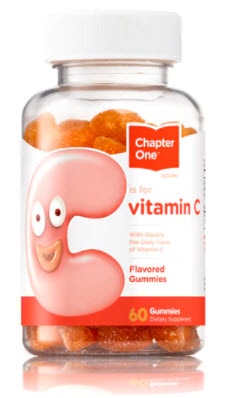 What it is:
What it is: Vitamin C helps maintain a healthy immune response, fights free radical damage to cells and helps support a healthy inflammatory response. It plays an important role in skin health, particularly wound healing and nurturing robust gum tissue.
Signs of deficiency: Formerly known as scurvy, a lack of vitamin C can cause fatigue, swollen bleeding gums, thick skin and dry hair.
Food sources: Citrus fruits, peaches, peppers, broccoli, spinach, strawberries and tomatoes.
Good to know: High levels of vitamin C can interfere with lab tests, such as stool tests or glucose screening tests. Don’t take more than 300 mg of a
vitamin C supplement within 24 hours of your test.
Vitamin D
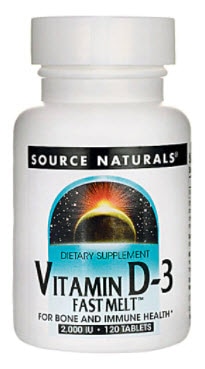 What it is:
What it is: Vitamin D is mission critical for many functions of the body, such as healthy bones, muscles and teeth. It interacts with more than 30 different tissues in the body, affects more than 1000 genes. It also supports immunity, maintains healthy heart function and supports respiratory health.
Signs of deficiency: In children, a lack of vitamin D can lead to rickets; in adults, it can lead to weakened bones and osteoporosis.
Food sources: Fortified milk, cereals, orange juice, or herring, wild salmon, sardines and fish liver oils.
Good to know: Humans can make their own
vitamin D after exposure to sunlight, but can’t make enough in northern climates or only small doses of sunlight.
Vitamin E
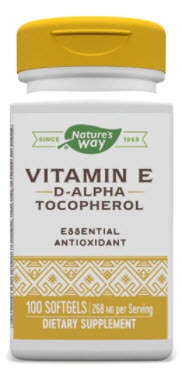 What it is: Vitamin E
What it is: Vitamin E helps ensure the functionality of the reproductive, vascular and nervous systems and protects cells from damage. It’s also vital for healthy skin, hair and nails, which explains why it’s a key player in many skin creams.
Signs of deficiency: No obvious signs for mild deficiency, but an extended deficiency can result in infection, anemia and poor pregnancy outcomes for mother and baby.
Food sources: Sunflowers are an excellent source of vitamin E, along with wheat germ, leafy green vegetables, whole grains and nuts.
Good to know: People with Crohn’s disease or cystic fibrosis are more prone toward vitamin e deficiency and should consider supplementation.
Vitamin K
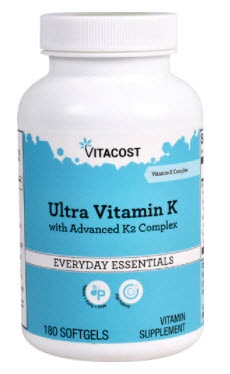 What it is: Vitamin K
What it is: Vitamin K is responsible for ensuring blood clots properly and maintaining strong bones. The good news? It has been estimated that up to half of the daily vitamin K requirement is provided by intestinal gut bacteria.
Signs of deficiency: Bleeding gums, frequent nose bleeds, heavy menstrual periods, and a tendency to bruise easily.
Food sources: Cabbage, liver, eggs, milk, spinach, broccoli, sprouts, kale, collards, and greens.
Good to know: If you are medication such as Wayfarin to prevent blood clots, do not over supplement vitamin K.
A final word to the wise
Consult with your healthcare provider before adopting a supplement plan. Remember that supplements are not a replacement for a healthy diet. Finally, taking too many vitamins can actually be harmful for your health.
†These statements have not been approved by the Food and Drug Administration. These products are not intended to diagnose, treat, cure or prevent disease.
 If you eat a mindful diet, full or fresh produce, constantly varied, you may indeed not need to supplement. But, as Meir Stampfer, M.D., professor of nutrition and epidemiology at Harvard University points out, “how many of us can claim to be getting the full complement of what we need from our diet each day?"
This vitamin guide will give you an understanding of how particular different types of vitamins work in your body—and whether it may be worth supplementing to avoid deficiencies.
If you eat a mindful diet, full or fresh produce, constantly varied, you may indeed not need to supplement. But, as Meir Stampfer, M.D., professor of nutrition and epidemiology at Harvard University points out, “how many of us can claim to be getting the full complement of what we need from our diet each day?"
This vitamin guide will give you an understanding of how particular different types of vitamins work in your body—and whether it may be worth supplementing to avoid deficiencies.
 What it is: Vitamin A is a fat-soluble vitamin essential to our health and it has several important functions in the body, most notably helping with vision by supporting the conjunctival membranes and cornea. In general, vitamin A promotes normal growth and health of the body cells, so it also helps keeps your skin and the lining of some parts of the body healthy.
Signs of deficiency: Extreme eye dryness is one of the first signs of deficiency, but other signs are dry, scaly skin, frequent diarrhea and respiratory infections.
Food sources: Liver is an excellent source of vitamin A, followed by shrimp, eggs, whole milk, yogurt, butter and cheese and fortified cereals, breads and milk.
Good to know: Retinol (a term used to describe a specific form of vitamin A) and the retina are etymologically connected for good reason—blood cells carry retinol to the retina in the back of the eye, where it’s used to help amplify vision in low light situations.
What it is: Vitamin A is a fat-soluble vitamin essential to our health and it has several important functions in the body, most notably helping with vision by supporting the conjunctival membranes and cornea. In general, vitamin A promotes normal growth and health of the body cells, so it also helps keeps your skin and the lining of some parts of the body healthy.
Signs of deficiency: Extreme eye dryness is one of the first signs of deficiency, but other signs are dry, scaly skin, frequent diarrhea and respiratory infections.
Food sources: Liver is an excellent source of vitamin A, followed by shrimp, eggs, whole milk, yogurt, butter and cheese and fortified cereals, breads and milk.
Good to know: Retinol (a term used to describe a specific form of vitamin A) and the retina are etymologically connected for good reason—blood cells carry retinol to the retina in the back of the eye, where it’s used to help amplify vision in low light situations.
 What they are: There are eight B vitamins in all, including folic acid, thiamin, niacin, and riboflavin, and they all have a similar function: metabolism support, stress regulation and the production of fuel and energy. The Bs work synergistically together to protect our nervous and cardiovascular systems. For pregnant women, or women planning to be, adequate folate (B9) is critical.
Signs of deficiency:
B1: Loss of appetite, constipation and irritability.
B2: Low energy, insomnia, sensitivity to light, itchy skin, sore throat, cracked corners of the mouth.
B3: Heartburn, abdominal bloating, mouth sores and constipation.
B5: Feet burning and tingling.
B6: Anemia, fatigue, weakness and cracked skin at corners of mouth.
B7: Hair loss, thinning hair, cracked skin at corners of mouth, red, scaly skin.
B9: Anemia, headaches, irritability.
B12: Pale skin, fatigue, dizziness, sore tongue, shortness of breath.
Food sources: Whole grains (brown rice, barley, millet), red meat, poultry, fish, eggs and dairy products, legumes, seeds and nuts, dark, leafy vegetables, citrus fruits, avocados, bananas.
Good to know: Because vitamin B12 occurs naturally only in animal products, vegans should take vitamin B12 supplements. Also, the risk of developing a B12 deficiency increases with age, with people over 60 particularly at risk.
What they are: There are eight B vitamins in all, including folic acid, thiamin, niacin, and riboflavin, and they all have a similar function: metabolism support, stress regulation and the production of fuel and energy. The Bs work synergistically together to protect our nervous and cardiovascular systems. For pregnant women, or women planning to be, adequate folate (B9) is critical.
Signs of deficiency:
B1: Loss of appetite, constipation and irritability.
B2: Low energy, insomnia, sensitivity to light, itchy skin, sore throat, cracked corners of the mouth.
B3: Heartburn, abdominal bloating, mouth sores and constipation.
B5: Feet burning and tingling.
B6: Anemia, fatigue, weakness and cracked skin at corners of mouth.
B7: Hair loss, thinning hair, cracked skin at corners of mouth, red, scaly skin.
B9: Anemia, headaches, irritability.
B12: Pale skin, fatigue, dizziness, sore tongue, shortness of breath.
Food sources: Whole grains (brown rice, barley, millet), red meat, poultry, fish, eggs and dairy products, legumes, seeds and nuts, dark, leafy vegetables, citrus fruits, avocados, bananas.
Good to know: Because vitamin B12 occurs naturally only in animal products, vegans should take vitamin B12 supplements. Also, the risk of developing a B12 deficiency increases with age, with people over 60 particularly at risk.
 What it is: Vitamin C helps maintain a healthy immune response, fights free radical damage to cells and helps support a healthy inflammatory response. It plays an important role in skin health, particularly wound healing and nurturing robust gum tissue.
Signs of deficiency: Formerly known as scurvy, a lack of vitamin C can cause fatigue, swollen bleeding gums, thick skin and dry hair.
Food sources: Citrus fruits, peaches, peppers, broccoli, spinach, strawberries and tomatoes.
Good to know: High levels of vitamin C can interfere with lab tests, such as stool tests or glucose screening tests. Don’t take more than 300 mg of a vitamin C supplement within 24 hours of your test.
What it is: Vitamin C helps maintain a healthy immune response, fights free radical damage to cells and helps support a healthy inflammatory response. It plays an important role in skin health, particularly wound healing and nurturing robust gum tissue.
Signs of deficiency: Formerly known as scurvy, a lack of vitamin C can cause fatigue, swollen bleeding gums, thick skin and dry hair.
Food sources: Citrus fruits, peaches, peppers, broccoli, spinach, strawberries and tomatoes.
Good to know: High levels of vitamin C can interfere with lab tests, such as stool tests or glucose screening tests. Don’t take more than 300 mg of a vitamin C supplement within 24 hours of your test.
 What it is: Vitamin D is mission critical for many functions of the body, such as healthy bones, muscles and teeth. It interacts with more than 30 different tissues in the body, affects more than 1000 genes. It also supports immunity, maintains healthy heart function and supports respiratory health.
Signs of deficiency: In children, a lack of vitamin D can lead to rickets; in adults, it can lead to weakened bones and osteoporosis.
Food sources: Fortified milk, cereals, orange juice, or herring, wild salmon, sardines and fish liver oils.
Good to know: Humans can make their own vitamin D after exposure to sunlight, but can’t make enough in northern climates or only small doses of sunlight.
What it is: Vitamin D is mission critical for many functions of the body, such as healthy bones, muscles and teeth. It interacts with more than 30 different tissues in the body, affects more than 1000 genes. It also supports immunity, maintains healthy heart function and supports respiratory health.
Signs of deficiency: In children, a lack of vitamin D can lead to rickets; in adults, it can lead to weakened bones and osteoporosis.
Food sources: Fortified milk, cereals, orange juice, or herring, wild salmon, sardines and fish liver oils.
Good to know: Humans can make their own vitamin D after exposure to sunlight, but can’t make enough in northern climates or only small doses of sunlight.
 What it is: Vitamin E helps ensure the functionality of the reproductive, vascular and nervous systems and protects cells from damage. It’s also vital for healthy skin, hair and nails, which explains why it’s a key player in many skin creams.
Signs of deficiency: No obvious signs for mild deficiency, but an extended deficiency can result in infection, anemia and poor pregnancy outcomes for mother and baby.
Food sources: Sunflowers are an excellent source of vitamin E, along with wheat germ, leafy green vegetables, whole grains and nuts.
Good to know: People with Crohn’s disease or cystic fibrosis are more prone toward vitamin e deficiency and should consider supplementation.
What it is: Vitamin E helps ensure the functionality of the reproductive, vascular and nervous systems and protects cells from damage. It’s also vital for healthy skin, hair and nails, which explains why it’s a key player in many skin creams.
Signs of deficiency: No obvious signs for mild deficiency, but an extended deficiency can result in infection, anemia and poor pregnancy outcomes for mother and baby.
Food sources: Sunflowers are an excellent source of vitamin E, along with wheat germ, leafy green vegetables, whole grains and nuts.
Good to know: People with Crohn’s disease or cystic fibrosis are more prone toward vitamin e deficiency and should consider supplementation.
 What it is: Vitamin K is responsible for ensuring blood clots properly and maintaining strong bones. The good news? It has been estimated that up to half of the daily vitamin K requirement is provided by intestinal gut bacteria.
Signs of deficiency: Bleeding gums, frequent nose bleeds, heavy menstrual periods, and a tendency to bruise easily.
Food sources: Cabbage, liver, eggs, milk, spinach, broccoli, sprouts, kale, collards, and greens.
Good to know: If you are medication such as Wayfarin to prevent blood clots, do not over supplement vitamin K.
What it is: Vitamin K is responsible for ensuring blood clots properly and maintaining strong bones. The good news? It has been estimated that up to half of the daily vitamin K requirement is provided by intestinal gut bacteria.
Signs of deficiency: Bleeding gums, frequent nose bleeds, heavy menstrual periods, and a tendency to bruise easily.
Food sources: Cabbage, liver, eggs, milk, spinach, broccoli, sprouts, kale, collards, and greens.
Good to know: If you are medication such as Wayfarin to prevent blood clots, do not over supplement vitamin K.



